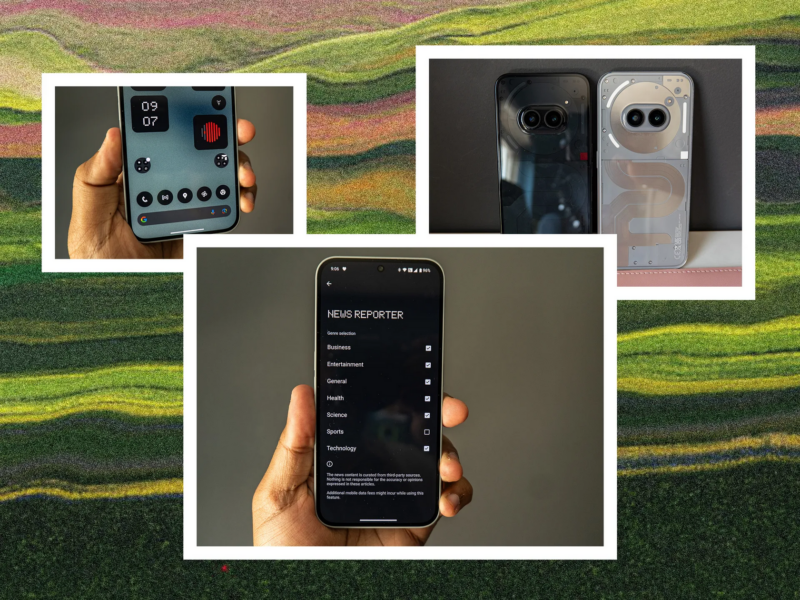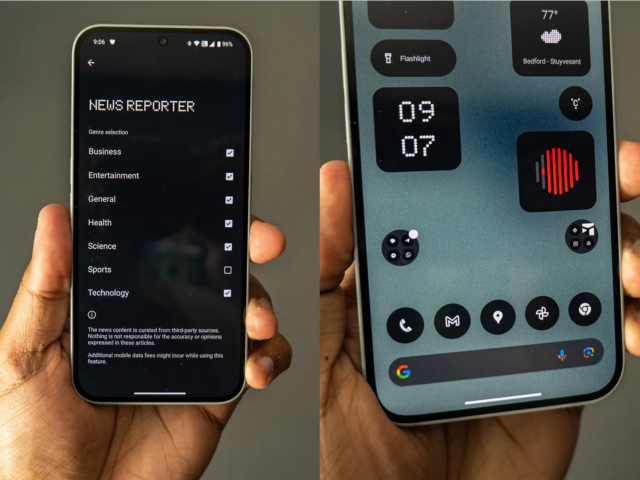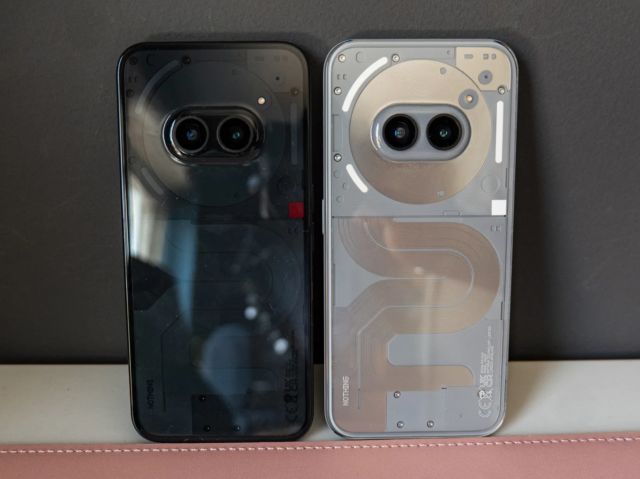Its news app is available on all Nothing and CMF handsets, including the new Phone (2a) Plus.

Nothing has a new smartphone—the Phone (2a) Plus—nearly identical to the Phone (2a) it released earlier this year, but with slightly beefed-up specs. It costs $399 and is available in the US through the same beta program. But it isn’t the new Android handset we find most interesting, it’s the company’s new widget.
The “News Reporter” widget, available by default on all Nothing and CMF smartphones plus other Android and iOS devices via the Nothing X app, lets you quickly play a news bulletin summarized by artificial intelligence. It is read out by the synthesized voice of Tim Holbrow, the company’s chief financial officer. (Nothing is using ElevenLabs’ tech for sound synthesis and output.) As soon as you tap the widget, you’re greeted by a soothing British voice:
“Welcome to Nothing News, where the only thing we take seriously is not taking anything seriously. I’m Tim, your CFO and reluctant news reader. Today, we’re making something out of nothing, because that’s literally our job.”
The widget will start cycling through a selection of news stories—you can press and hold the widget and tap Edit to add or remove categories you’re interested in, such as business, entertainment, tech, and sports. These news stories are pulled from “trusted English-language news sources” through News API, using Meta’s Llama large language models for the summary.

You can swipe down the notification bar and press the next button on the media playback notification to skip a story, to which Holbrow will add a quip. “Not feeling that one? Let’s find another.” After I skipped quite a few in a row, AI Holbrow asked, “Do you even like news?”
ARS VIDEO
How Lighting Design In The Callisto Protocol Elevates The Horror
The summaries are one minute each (roughly), and you get eight stories per day. Every morning, the widget will refresh with a fresh batch. Unfortunately, and frustratingly, the widget doesn’t give you much to go on if you want to read more. There’s no attribution to where it pulled the news from, and no links are provided to read directly from the source.
Every smartphone company has been touting some kind of generative AI feature in new devices this year. Samsung has Galaxy AI; Google has its Gemini chatbot and a bevy of AI features in Pixel phones; Motorola introduced Moto AI recently; and even OnePlus has been teasing a few AI features in its phones, like AI Eraser, which lets you remove unwanted objects from photos. Nothing introduced a ChatGPT integration in its earbuds earlier this year, and this widget is the latest generative AI feature to land.
That said, it’s hardly the first time we’ve seen a news summarization feature. Back when Amazon Alexa and Google Assistant were gaining popularity, one of the top features was to ask the voice assistant to play the news—you’d be able to hear short news clips from various sources, like NPR and CNN. That said, I like the implementation in Nothing’s widget, but I’d also like to see attribution and a way to dig deeper into a story if it’s interesting.
What about that phone?
As for the Nothing Phone (2a) Plus, I’ve been using it for several days and it’s … indiscernible from the Phone (2a) I reviewed positively in March. I love the new gray color option, which hides smudges on the rear better and makes the phone’s already fun design pop even more. You still get the same Glyph light functionality, allowing the LEDs to light up for notifications and calendar events, and even double as a visualizer when playing music.

The top change here is the processor. Inside is MediaTek’s Dimensity 7350 Pro 5G (as opposed to the Phone (2a)’s Dimensity 7200 Pro), which offers a 10 percent increase in CPU power, and a 30 percent jump in graphics performance. Honestly, I didn’t notice a huge bump in speed, and my benchmark scores show a very tiny boost.
The next upgrade is in the camera, namely, the selfie camera and its new 50-MP sensor that can shoot 4K at 30 frames per second (up from 32 megapixels). The company says it has issued seven updates since the launch of the Phone (2a) with 26 improvements to the camera, which include upgrades to loading speeds, color consistency, and blur accuracy in portrait mode. The Phone (2a) Plus launches with all of those improvements, and the 50-MP front and ultrawide cameras on the rear are the same.
Selfies indeed look much nicer, especially in low light, where my face appears sharper with better HDR and a more balanced exposure. The rear cameras produce nice results considering the price, and I found daytime renders to deliver natural-looking colors. It can still struggle with super high-contrast scenes, but this is a solid camera system.
Lastly, the wired charging on the phone now supports 50 watts (up from 45 watts), which supposedly gets you a 10 percent charging speed boost. Everything else is identical from the Phone (2a)’s specs, from the 6.7-inch AMOLED display to the 5,000-mAh battery.
Nothing new
I’ve enjoyed the phone over the past few days, but its launch is so peculiar, considering it doesn’t introduce any groundbreaking updates to the Phone (2a). So I asked the company why it decided to launch the (2a) Plus now. “We aren’t launching Phone (3) until next year, and we saw an opportunity to enhance the smartphone we launched in March with Phone (2a) Plus, a new smartphone—catered towards power users—at an accessible price point,” says Jane Nho, Nothing’s head of PR in the US. The company launched its last flagship phone, the Phone (2), in July 2023.
So there you have it: The Phone (2a) Plus is a seemingly painless way for Nothing to try and stay relevant amidst all the other smartphone launches, still have an AI story, boost sales, and oddly try and make some sort of digital celebrity out of its CFO.
Nothing says it’ll go on sale August 3 in London at Nothing’s store in Soho, in gray and black, with 12GB RAM and 256GB storage. In the US, the device will follow the same beta program system as the Phone (2a) and CMF Phone 1. That means you’ll have to sign up for the beta, and once you’re accepted, you’ll be able to purchase the device for $399. It’ll be available on August 7 at 9 am ET.
This story originally appeared on wired.com.




